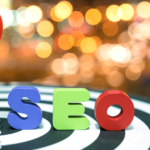The Role of AI in Revolutionizing Digital Marketing
Artificial intelligence (AI) has emerged as a game-changing technology in various industries, and digital marketing is no exception. With its ability to analyze vast amounts of data, automate processes, and deliver personalized experiences, AI is revolutionizing the way businesses approach their digital marketing strategies. In this article, we will explore the role of AI in revolutionizing digital marketing and its impact on businesses.
Understanding Artificial Intelligence in Digital Marketing
Artificial intelligence refers to the development of computer systems capable of performing tasks that typically require human intelligence, such as visual perception, speech recognition, decision-making, and problem-solving. In the context of digital marketing, AI technologies leverage algorithms and machine learning to process large datasets, gain insights, and automate marketing processes.
Where can I make use of AI in Digital Marketing?
AI can be applied to various aspects of digital marketing. Here are some key areas where you can make use of AI:
Content Creation and Optimization: AI can assist in content creation by generating written or visual content based on predefined parameters. It can help with copywriting, image and video editing, and even create personalized product descriptions. AI can also optimize content by analyzing data and identifying patterns that resonate with your target audience, leading to more effective content strategies.
Chatbots and Virtual Assistants: AI-powered chatbots and virtual assistants can provide instant and personalized responses to customer inquiries. They can assist customers throughout their buying journey, answer frequently asked questions, and even process transactions. This helps improve customer engagement, provides round-the-clock support, and frees up human resources for more complex tasks.
Email Marketing and Personalization: AI can enhance email marketing campaigns by enabling dynamic and personalized content. By analyzing customer data and behaviors, AI algorithms can deliver highly tailored email messages, recommending products, and offers based on individual preferences and previous interactions.
Social Media Marketing: AI can analyze social media data to identify trends, sentiments, and customer preferences. It can help you understand how your brand is perceived, track social media conversations, and even suggest optimal posting times and content strategies to maximize engagement.
Ad Optimization and Targeting: AI-powered tools can analyze data in real-time to optimize digital advertising campaigns. They can automate bidding strategies, target specific audience segments, and allocate budgets to the most effective channels and platforms, resulting in improved ad performance and return on investment.
It’s important to note that while AI can bring significant benefits to digital marketing, human oversight and creativity are still essential. AI should be seen as a tool to augment human capabilities and improve efficiency, rather than replacing the human element in marketing strategies. So, it’s still necessary to hire a digital marketing expert to grow your businesses.
Role of AI in Revolutionizing Digital Marketing
Enhanced Customer Insights
One of the significant contributions of AI in digital marketing is its ability to gather and analyze vast amounts of customer data. AI algorithms can extract valuable insights from customer interactions, online behavior, social media engagement, and purchase history. This data-driven approach enables businesses to gain a deeper understanding of their target audience, their preferences, and their needs. With these insights, businesses can create more targeted and personalized marketing campaigns to engage their customers effectively.
Hyper-Personalization
AI empowers businesses to deliver hyper-personalized experiences to their customers. By leveraging AI-driven algorithms, businesses can create dynamic content, recommendations, and product offerings tailored to individual customer preferences. AI algorithms can predict customer behavior and preferences based on historical data and real-time interactions, enabling businesses to provide highly relevant and personalized marketing messages. This level of personalization enhances customer engagement, satisfaction, and ultimately leads to improved conversion rates and customer loyalty.
Automated Marketing Processes
AI automates time-consuming and repetitive marketing tasks, freeing up valuable resources and allowing marketers to focus on strategic activities. AI-powered chatbots, for example, can handle customer inquiries, provide instant responses, and guide customers through their purchasing journey. AI algorithms can also automate email marketing campaigns, lead scoring, and segmentation, ensuring that the right message reaches the right customer at the right time. By automating these processes, businesses can improve efficiency, scale their marketing efforts, and deliver consistent customer experiences.
Predictive Analytics
AI’s predictive analytics capabilities are a game-changer for digital marketers. By analyzing historical data and identifying patterns, AI algorithms can make accurate predictions about future customer behavior, market trends, and campaign performance. This enables businesses to make data-driven decisions, optimize marketing strategies, and allocate resources effectively. Predictive analytics also helps in identifying potential high-value customers, reducing churn rates, and maximizing the ROI of marketing campaigns.
Improved Customer Engagement
AI-powered technologies such as chatbots and virtual assistants provide businesses with the ability to engage customers in real-time conversations and deliver personalized recommendations. Chatbots can understand customer queries, provide instant responses, and guide customers through their purchasing journey. Virtual assistants can analyze customer data, provide personalized suggestions, and even complete transactions. These interactive experiences enhance customer engagement, improve customer satisfaction, and foster brand loyalty.
Conclusion
Artificial intelligence is revolutionizing digital marketing by providing businesses with powerful tools to understand their customers better, deliver hyper-personalized experiences, automate marketing processes, leverage predictive analytics, and enhance customer engagement. By harnessing the capabilities of AI, businesses can gain a competitive edge in the digital landscape, drive customer acquisition and retention, and achieve their marketing objectives more efficiently.
As AI continues to advance, its role in digital marketing is only expected to grow, making it imperative for businesses to embrace this transformative technology to stay ahead in the dynamic world of digital marketing. However, a digital marketing professional is still needed to monitor and to know how and where to make use of AI!!







